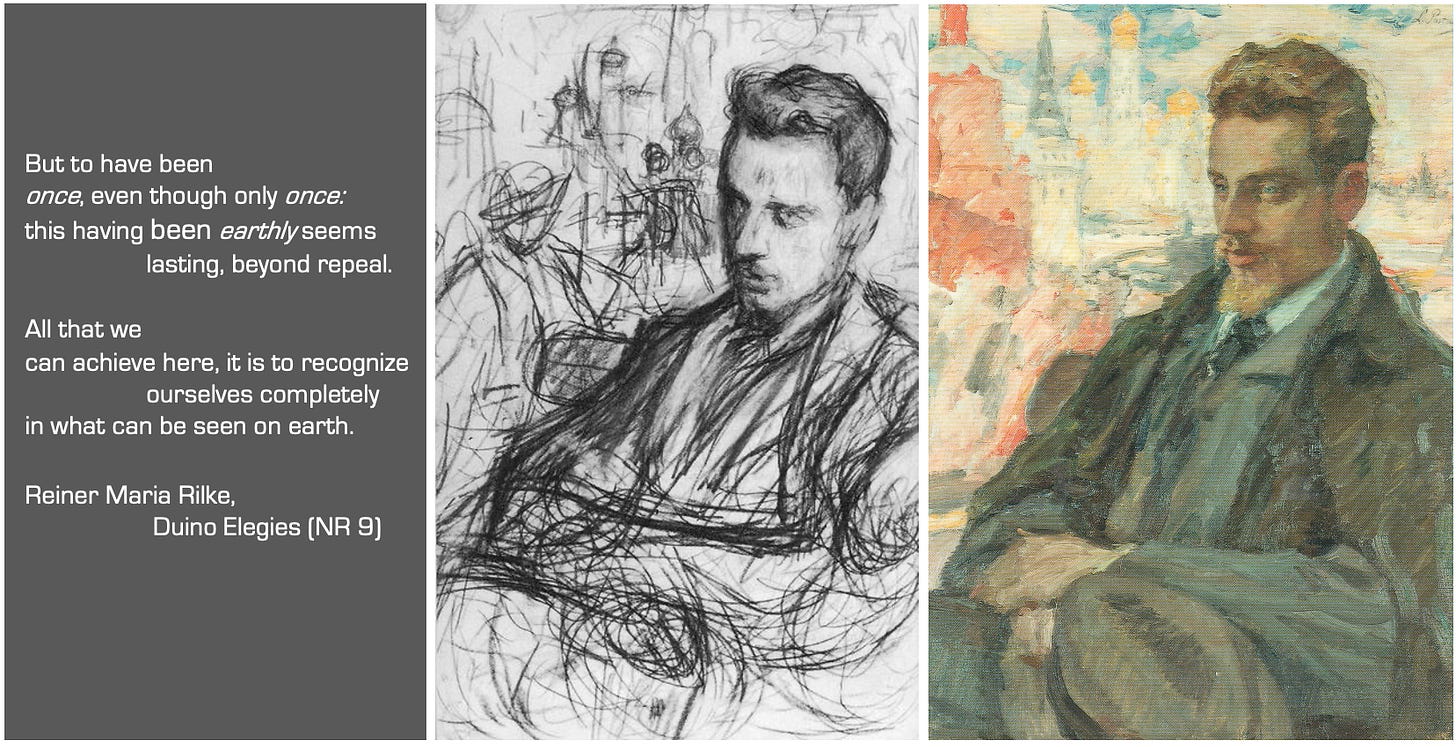Solitude gains value when we use it to reconsider
Perhaps our hunger for a more vivid and permanent world is a quest for our naked self.
Russia was the first place where he felt liberated from what poet Robert Hass called ‘the geography of suffocation.’ Rainer Maria Rilke is the hardest to locate in a place. And perhaps that’s why his writing still resonates with us.
Marlene Dietrich, Martin Heiddeger, Warren Zevon all knew Rilke poems by heart. His ability to connect the everyday with the transcendent seems to indicate that the key to resolving what ails us is right in front of our eyes.
Rilke was the reason I took German studies in University. His work is immediately accessible, the intimacy affects the reader for a lifetime. It speaks of the transience of the most valued experiences, and of the hunger for a more vivid and permanent world.
“And yet life is transformation: all that is good is transformation and all that is bad as well. For this reason he is in the right who encounters everything as something that will not return. It does not matter whether he then forgets or remembers, as long as he had been fully present only for its duration and been the site, the atmosphere, the world for what happened, as long as it happened within him, in his center, whatever is good and what is bad—then he really has nothing else to fear because something else of renewed significance is always about to happen next. The possibility of intensifying things so that they reveal their essence depends so much on our participation. When things sense our avid interest, they pull themselves together without delay and are all they can be, and in everything the new and the old is then whole, only different and vastly heightened.”
From Letters on Life (edited and translated by Rilke Scholar Ulrich Baer)
The letters were a rehearsal for the poems.
Though he lived the mostly solitary life of the writer, Rilke corresponded with a vast assortment of people—from editors and aristocrats, to his wife, friends, lovers, fellow artists, and also cleaning ladies, whop owners and politicians.
He responded to letters that spoke to him. In all, about seven of the eleven thousand he wrote in German and French are part of public archives.
Do our beginnings know our ends?
Keep reading with a 7-day free trial
Subscribe to On Value in Culture with Valeria Maltoni to keep reading this post and get 7 days of free access to the full post archives.





